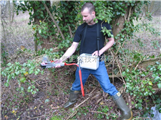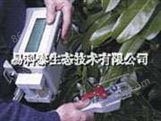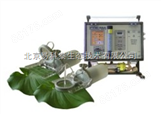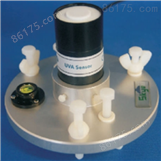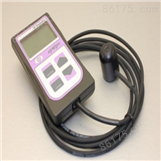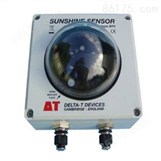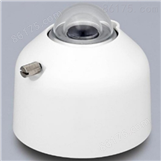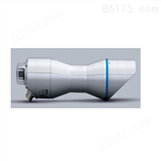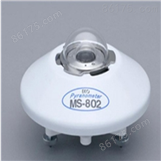植物光合熱釋光測(cè)量系統(tǒng)
植物光合熱釋光測(cè)量系統(tǒng)是研究光合作用的強(qiáng)有力的工具,是研究PSII電子傳輸?shù)挠行结槪瑥V泛應(yīng)用于除草劑對(duì)PSII的受體效應(yīng)、QA與QB穩(wěn)定性、光合放氧復(fù)合物(OEC)穩(wěn)定性及PSII總體完整性等,還用于光合突變個(gè)體的篩選等。
植物光合熱釋光測(cè)量系統(tǒng)是針對(duì)研究PSII能量水平結(jié)構(gòu)而設(shè)計(jì)的。PSII反應(yīng)中心光誘導(dǎo)電荷分離導(dǎo)致儲(chǔ)存了吸收光能的激發(fā)電子對(duì)的累積。加熱誘導(dǎo)這些激發(fā)電子對(duì)的重組,從而引發(fā)光釋放,并在一定溫度范圍內(nèi)形成特異性熱釋光曲線。根據(jù)不同釋光曲線的形狀、峰位和峰值,可以研究分析關(guān)于特定激發(fā)電子對(duì)的能量穩(wěn)定性及PSII反應(yīng)中心功能等。TL200系列熱釋光測(cè)量?jī)x的測(cè)量范圍為-90°C到+190°C,使用范圍更寬,可以對(duì)低溫、高溫段熱釋光進(jìn)行研究。
 應(yīng)用領(lǐng)域
應(yīng)用領(lǐng)域
- 光合機(jī)理研究——捕光色素復(fù)合體,PSII反應(yīng)中心,放氧復(fù)合物研究;PSII能級(jí)分析;原初反應(yīng)階段的內(nèi)在過(guò)程探測(cè)
- 植物脅迫生理的早期檢測(cè)與診斷
- 植物病蟲害相關(guān)研究
- 除草劑影響
- 對(duì)植物光合研究的完善補(bǔ)充
典型樣品
植物碎片
各種微藻
 葉綠體懸浮液
葉綠體懸浮液
類囊體懸浮液
工作原理
熱釋光(Thermoluminescence,縮寫TL)是晶體受到輻射照射后,會(huì)產(chǎn)生自由電子,這些電子被晶格缺陷俘獲而積攢起來(lái),在加熱過(guò)程中以光形式釋放出來(lái)。其基本的實(shí)驗(yàn)過(guò)程是將葉片快速冷凍到某一溫度,之后給葉片一個(gè)足夠強(qiáng),但時(shí)間盡量短(一般<5µs)的單翻轉(zhuǎn)光(single turn-over ?ash),用于誘導(dǎo)每個(gè)PSII反映中心發(fā)生僅一次的電荷分離;然后逐漸升溫,同時(shí)測(cè)量葉片放出的熱釋光,繪制TL譜帶。
熱釋光研究中的一個(gè)主要工具是單次翻轉(zhuǎn)光閃,要求足夠強(qiáng)(光源強(qiáng)度高達(dá) 150 000 µmol(photons).m-2.s-1)和足夠短(典型 < 5 微秒)來(lái)誘導(dǎo)每一個(gè)PSII反應(yīng)中心發(fā)生一次,且僅一次的電荷分離。光閃的飽和效果可以通過(guò)QB段的強(qiáng)度來(lái)檢查,它應(yīng)該在*光閃后達(dá)到zui大,在2次光閃后不再增加。當(dāng)前許多實(shí)驗(yàn)中使用的氙燈光閃具有明顯缺陷——一個(gè)長(zhǎng)的持續(xù)發(fā)光,或者“閃光拖尾”,這會(huì)在某些PSII反應(yīng)中心中產(chǎn)生兩次的電荷分離(連擊)。雖然激光閃光能夠有效降低連擊,但不能消除。
TL200系列熱釋光測(cè)量?jī)x使用能量足夠強(qiáng)的LED光源,所釋放5-10µs的方波脈沖能夠飽和所有的PSII反應(yīng)中心,其溫度控制單元可以在降溫后,再使樣品的溫度以0.1℃/sec到 2℃/sec的速率線性增加。不同的閃光序列及樣品處理能夠使樣品處于不同的能量狀態(tài),不同的溫度下釋放的光能源自光合機(jī)構(gòu)的不同結(jié)構(gòu)。分析釋光曲線的形狀、峰位和峰值,可以研究分析關(guān)于特定激發(fā)電子對(duì)的能量穩(wěn)定性及PSII反應(yīng)中心功能等。
熱釋光與光合機(jī)構(gòu)間關(guān)系
TL200系列熱釋光測(cè)量?jī)x三種型號(hào)的控溫方式與范圍
具體型號(hào) | 控溫方式 | 控溫范圍 |
TL200/PMT標(biāo)準(zhǔn)版 | 水冷單元——控溫模塊 | -25 ℃ 到+70 ℃ |
TL300/HT高溫版 | 水冷單元——高溫控制模塊 | -25 ℃ 到+190 ℃ |
TL400/LT液氮版 | 水冷單元——液氮制冷單元——控溫模塊 | -90 ℃ 到+70 ℃ |
系統(tǒng)組成
TL200系列熱釋光測(cè)量系統(tǒng)由3部分組成:多功能控制單元、溫度調(diào)節(jié)器控制單元及測(cè)量室 。
多功能控制單元(Multipurpose Control Unit)根據(jù)用戶定義方案或熱發(fā)光向?qū)峁┑膶?shí)驗(yàn)程序來(lái)執(zhí)行實(shí)驗(yàn)過(guò)程,有兩個(gè)輸入頻道,一個(gè)用于測(cè)量熱發(fā)光信號(hào)(TL信號(hào)),另一個(gè)用于測(cè)量溫度。 測(cè)量曲線以兩種格式顯示:時(shí)間/溫度和時(shí)間/TL信號(hào),或溫度/TL信號(hào)。
溫度調(diào)節(jié)器控制單元(Thermoregulator Control Unit)可以在-90°C 到 +190°C范圍內(nèi)以0.1°C的精確度控制樣品的溫度。 系統(tǒng)前面板可以顯示實(shí)際的溫度,溫度調(diào)節(jié)可以通過(guò)手動(dòng)或程序控制(軟件)來(lái)實(shí)現(xiàn)。有兩種工作模式:恒溫模式和溫度梯度模式,在恒溫模式下儀器將維持樣品在恒定的溫度,而在溫度梯度模式下,可以使樣品的溫度以0.1°C/sec到 2°C/sec的速率線性變化。
AC-88水冷單元可將系統(tǒng)溫度降低到4°C,包含一個(gè)電子控制的抽水泵和內(nèi)部可以儲(chǔ)水的制冷器,用于降低測(cè)量室的環(huán)境溫度。
CryoFab液氮罐通過(guò)管路連接到測(cè)量室,通過(guò)電子控制的低溫輸出閥可以將系統(tǒng)溫度控制在 -20°C 到 -90°C。
由TFPE單元控制的輔助加熱模塊可以將系統(tǒng)溫度加熱到+190°C。
測(cè)量室(Measuring Chamber)又包括四個(gè)關(guān)鍵組成部分:光源、 光電倍增器、A/D 轉(zhuǎn)換器、具有溫度控制器的樣品盤:
- 光源由8個(gè)超亮的發(fā)光二極管(λmax=630 nm)組成,發(fā)射的光閃強(qiáng)度高達(dá)150,000 µmol(photons). m-2.s-1以上,光閃持續(xù)時(shí)間zui長(zhǎng)為150 µs(典型5-10us),光強(qiáng)和光閃持續(xù)時(shí)間通過(guò)軟件控制。
- 光電倍增器可以探測(cè)從300到900nm范圍的光量子,從而測(cè)量熱發(fā)光信號(hào)和緩發(fā)熒光。光電倍增器包括自己的電源。
- A/D轉(zhuǎn)換器用于光電倍增器的電流放大、軟件控制增益和數(shù)字化,放大器的時(shí)間反應(yīng)固定在50ms,以確定zui小取樣周期到100ms。
技術(shù)參數(shù)
TL200/PMT標(biāo)準(zhǔn)版:-25 ℃ 到+70 ℃
TL 300/HT高溫版:-25 ℃ 到+190 ℃
TL 400/LT液氮版:-90 ℃ 到+70 ℃
- 控溫模式:恒溫;線性變化(0.1ºC/sec - 2ºC/sec)
- 過(guò)熱保護(hù):提供
環(huán)境光保護(hù):提供 - 控制模式:手動(dòng)(恒溫);程序設(shè)定溫度曲線
- 樣品盤:直徑½英寸鍍金銅盤
- 測(cè)量樣品:藻類、藍(lán)細(xì)菌、葉綠體懸浮液,葉片碎片等
- 光源:波長(zhǎng)lmax=625nm,光源強(qiáng)度高達(dá) 150 000 µmol(photons). m-2.s-1以上
- 探測(cè)系統(tǒng):傳感器為可以通過(guò)軟件靈敏控制的光電倍增器,光譜響應(yīng)為300nm-900nm,zui小取樣周期100ms,時(shí)間響應(yīng)50ms,接通延遲100ms
- 控制:用戶可通過(guò)語(yǔ)言自定義程序控制儀器測(cè)量過(guò)程
- 通訊:USB
- 軟件:FluorWin 3.6
- 電源:90V-240V
操作軟件與實(shí)驗(yàn)結(jié)果


典型應(yīng)用

上圖為源自擬南芥未冷凍葉片的熱釋光(M.Roman ,1998)。實(shí)心符號(hào):對(duì)照(a);空心符號(hào):輕度脫水(b)。單閃(細(xì)線)產(chǎn)生75%的S2和25%的S1(只有S2和S3產(chǎn)生熱釋光,S1無(wú)),雙閃(粗線)25%的S2和75%的S3,3閃(點(diǎn)線)25%的S3。a、對(duì)照植物。單閃后,熱釋光B段與S2QB-相*(B2,見表1)且可以被單因子擬合得很好。2次閃光后,則需要3個(gè)因子,S2QB-(B1),S3QB-(B2)和一個(gè)剩余因子(未顯示)。b、適度脫水的植物。B段下調(diào),S3比S2在更大程度上表明了類囊體腔內(nèi)一個(gè)暗穩(wěn)態(tài)的酸性pH。45攝氏度段(余輝)源自S2/3QB中心中熱誘導(dǎo)的從基質(zhì)還原劑向QB的電子傳遞,使它們發(fā)光:它的增加表明了一個(gè)強(qiáng)的同化勢(shì)能NADP+ATP(Ducruet 2003)。
產(chǎn)地:歐洲
參考文獻(xiàn):(僅2011年發(fā)表的部分文獻(xiàn),77篇中的14篇)
- Thermoluminescence. PV Sane, et al, 2012. Photosynthesis
- Analysis of S2QA-charge recombination with the Arrhenius, Eyring and Marcus theories. S Rantamäki, et al, 2011. Journal of Photochemistry and Photobiology B: Biology
- Manganese limitation induces changes in the activity and in the organization of photosynthetic complexes in the cyanobacterium Synechocystis sp. strain PCC 6803. E Salomon, et al, 2011. Plant physiology
- Inhibition of photosynthetic oxygen evolution and electron transfer from the quinone acceptor QA− to QB by iron deficiency. N Msilini, et al, 2011. Photosynthesis research
- Chlorophyll fluorescence emission as a reporter on cold tolerance in Arabidopsis thaliana accessions. A Mishra, et al. Plant Signaling & Behavior, 2011
- Characterization of photosystem II in transgenic tobacco plants with decreased iron superoxide dismutase. Y Zhang, et al, 2011. Biochimica et Biophysica Acta
- Two functional sites of phosphatidylglycerol for regulation of reaction of plastoquinone Q< sub> B</sub> in photosystem II. S Itoh, et al, 2011. Biochimica et Biophysica Acta
- Binding Stoichiometry and Affinity of the Manganese-Stabilizing Protein Affects Redox Reactions on the Oxidizing Side of Photosystem II. JL Roose, et al, 2011. Biochemistry
- Species-dependence of the redox potential of the primary quinone electron acceptor QA in photosystem II verified by spectroelectrochemistry. T Shibamoto, et al, 2010. FEBS letters
- Flavodiiron proteins in oxygenic photosynthetic organisms: photoprotection of photosystem II by Flv2 and Flv4 in Synechocystis sp. PCC 6803. P Zhang, et al, 2009. PloS one
- Comparative analysis of leaf‐type ferredoxin‐NADP+ oxidoreductase isoforms in Arabidopsis thaliana. M Lintala, et al, 2009. The Plant Journal
- Psb28 protein is involved in the biogenesis of the photosystem II inner antenna CP47 (PsbB) in the cyanobacterium Synechocystis sp. PCC 6803. M Dobáková, et al, 2009. Plant physiology
- Functional complementation of the Arabidopsis thaliana psbo1 mutant phenotype with an N-terminally His6-tagged PsbO-1 protein in photosystem II. H Liu, et al, 2009. Biochimica et Biophysica Acta
- Interaction of methylamine with extrinsic and intrinsic subunits of photosystem II. S Hamdani, et al, 2009. Biochimica et Biophysica Acta
- Investigation of the low-affinity oxidation site for exogenous electron donors in the Mn-depleted photosystem II complexes. VN Kurashov, et al, 2009. Biochimica et Biophysica Acta
- Changes in the photosynthetic reaction centre II in the diatom Phaeodactylum tricornutum result in non‐photochemical fluorescence quenching. D Eisenstadt, et al, 2008. Environmental Microbiology
- Characterization of photosystem II in salt-stressed cyanobacterial Spirulina platensis cells. H Gong, et al, 2008. Biochimica et Biophysica Acta
- The cyanobacterial homologue of HCF136/YCF48 is a component of an early photosystem II assembly complex and is important for both the efficient assembly and Repair of Photosystem II in Synechocystis sp. PCC 6803*. J Komenda, et al, 2008. Journal of Biological chemistry.
- Early detection of bean infection by Pseudomonas syringae in asymptomatic leaf areas using chlorophyll fluorescence imaging. L Rodríguez-Moreno, et al, 2008. Photosynthesis research
- Effects of heat stress on PSII photochemistry in a cyanobacterium Spirulina platensis. B Zhao, et al, 2008. Plant Science
- The effects of simultaneous RNAi suppression of PsbO and PsbP protein expression in photosystem II of Arabidopsis. X Yi, et al, 2008. Photosynthesis research
- Functional analysis of photosystem II in a PsbO-1-deficient mutant in Arabidopsis thaliana. H Liu, et al, 2007. Biochemistry
- Efficiency and role of loss processes in light‐driven water oxidation by PSII. M Grabolle, et al, 2007. Physiologia plantarum
- Changes of Photosystem II Electron Transport in the Chlorophyll‐deficient Oilseed Rape Mutant Studied by Chlorophyll Fluorescence and Thermoluminescence. JW Guo, et al, 2007. Journal of Integrative Plant Biology
- The exposed N-terminal tail of the D1 subunit is required for rapid D1 degradation during photosystem II repair in Synechocystis sp PCC 6803. J Komenda, et al, 2007. The Plant Cell
- The chlorophyll a fluorescence induction pattern in chloroplasts upon repetitive single turnover excitations: accumulation and function of QB-nonreducing centers. W Vredenberg, et al, 2006. Biochimica et Biophysica Acta
- The polyphasic chlorophyll a fluorescence rise measured under high intensity of exciting light. D Lazár , 2006. Functional Plant Biology
- The synechocystis sp PCC 6803 oxa1 homolog is essential for membrane integration of reaction center precursor protein pD1. F Ossenbühl, et al, 2006. The Plant Cell
- Sucrose and glycerol effects on photosystem II. KM Halverson, et al, 2003. Biophysical journal
- Copper-induced inhibition of photosynthesis: limiting steps of in vivo copper chlorophyll formation in Scenedesmus quadricauda. H Küpper, et al, 2003. Functional Plant Biology
- Heavy metal‐induced inhibition of photosynthesis: targets of in vivo heavy metal chlorophyll formation1. h küpper, et al, 2002. journal of Phycology
- Experimental and theoretical studies on the excess capacity of Photosystem II. R Kaňa, et al, 2002. Photosynthesis research
- Nitrogen deprivation strongly affects Photosystem II but not phycoerythrin level in the divinyl-chlorophyll b-containing cyanobacterium Prochlorococcus marinus. C Steglich, et al, 2001. Biochimica et Biophysica Acta
- Integrity and activity of photosystem 2 complexes isolated from the thermophilic cyanobacterium Synechococcus elongatus using various detergents. E Šetlíková, et al, 1999. Photosynthetica
- The PsbY protein is not essential for oxygenic photosynthesis in the cyanobacterium Synechocystis sp. PCC 6803. M Meetam, et al, 1999. Plant physiology
- Nonphotochemical reduction of the plastoquinone pool in sunflower leaves originates from chlororespiration. TS Feild, et al, 1998. Plant physiology




